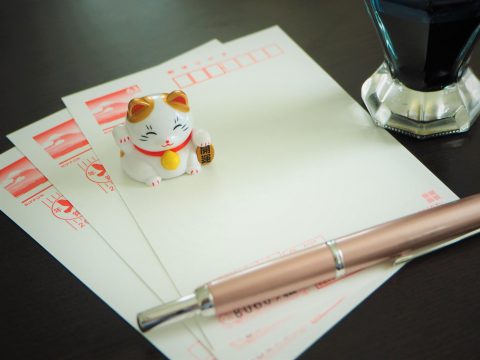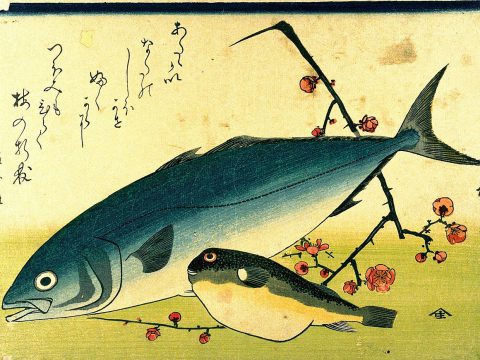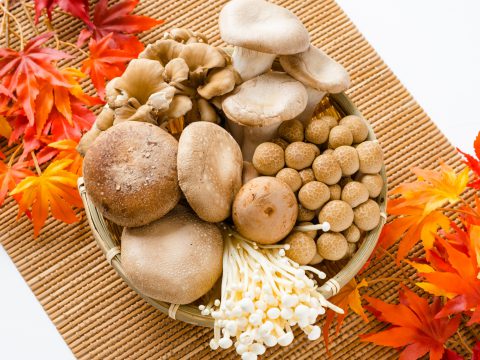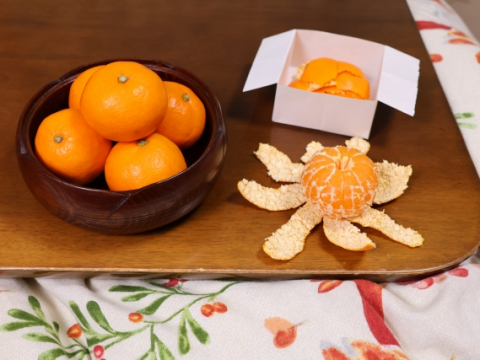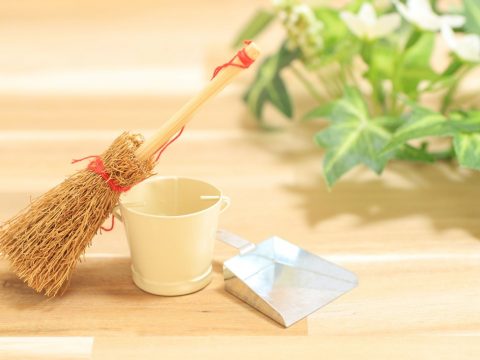Japanese Winter Foods
JAPANESE FOODS
30.12.2022
Winter in Japan is cold and dry, with very little rain. Depending on the region, it can get quite a lot of snow! Let’s look into the various winter foods the Japanese enjoy during this time of year.
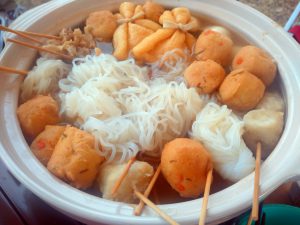
Hot Pot
Hot pot, also known as Nabemono (鍋物) or simply Nabe (鍋), describes both the dish and the cooking vessel and is a one-pot meal cooked at the table. It’s both a home food and also served at restaurants.
You can make it at home by assembling the ingredients at the supermarket. You can make the soup base from scratch, but you can easily buy commercial soup bases or single-servings of pre-assembled hot pots at the supermarket.
Read more about Japanese Hot Pot

Oden
Another type of hot pot, oden, is a hearty stew. Unlike other nabes, cooked briefly at the table, oden is cooked longer for the flavors to seep in. The broth base is usually a light dashi; the ingredients are different types of fish cakes, thickly sliced daikon, boiled eggs, konnyaku/konjak, and more.
You can make oden at home by buying the various ingredients separately or find oden packages with a soup base. If you’re not in the mood for cooking, find oden sold near the cash register at most convenience stores! You can choose what you want to take home and enjoy the piping hot oden without turning on the stove.

Christmas Foods
Despite just 1% of the total Japanese population being of the Christian faith, the Japanese have adapted the Christmas festivities in their creative ways. Christmas is mainly a commercial event in Japan, and Christmas day is not a public holiday.
From Japanese shortcakes, fried chicken, and non-alcoholic sparkling juice, the Japanese celebrate Christmas with friends and family and, of course, good food.
Read more about Christmas in Japan

Japanese New Years Foods
Unlike its neighboring countries, the Japanese celebrate the calendar new year, not the lunar new year. During the first three days of the new year, the Japanese eat a collection of auspicious foods called Osechi Ryori (おせち料理), wishing for prosperity, health, and good luck.
Read more about the Japanese New Years Food
Mikan
Also known as tangerines, satsuma mandarin, and unshu mikan, it is seedless oranges with thin skin. Its origin is unknown; some theories claim it came from China, while others say it came from the Satsuma region (southern Japan).
Mikan season is in the winter, and you may have seen Japanese movies or TV shows of people eating mikan under the kotatsu (low table with a futon cover).
There are wide varieties and brands of mikan. Some mikan is tart or sweet, whereas others are balanced in both. Some are bright orange, and some have a green tint. The prefectures famous for their mikan are Ehime and Shizuoka, although it’s grown in many other parts of Japan.
Read more about Japanese citrus fruits

Strawberries
You’ll start seeing strawberries during the wintertime, an essential element in Japanese Christmas cakes/shortcakes. These greenhouse-grown jewels come in all shapes and sizes and are grown across the country. Japanese strawberries are bred to look beautiful and perfect and taste delicious, so give them a try!
There are over 300 varieties in Japan, with new ones introduced almost every year thanks to cultivation technologies. Depending on where you’re located, you may notice local strawberries are not available elsewhere.
Read more about Japanese strawberries


Kayoko Hirata Paku
Kayoko Hirata Paku is a food writer, translator, and bagel person. Growing up in Japan and the U.S., she currently resides in Tokyo with her peanut butter addicted husband, a very hungry baby, and many half-dead plants.
Read previous articles by the writer
Read latest articles
KEYWORDS
- # PICKPICK
- # Resume
- # alcohol
- # Rice
- # Soup
- # winter food
- # Fast Food
- # seafood
- # spicy foods
- # raw food
- # fermented food
- # Transportation
- # MEAT
- # Edo culture
- # suits
- # clothing
- # drink
- # fish
- # seasoning
- # Japanese New Years Foods
- # Toshikoshi soba
- # Osechi Ryori
- # Ozoni
- # Christmas
- # Japanese fusion pasta
- # Wafu Pasta
- # Japanese Hot Pot
- # なべ
- # 鍋
- # Miyazaki
- # Chicken Nanban
- # Karamen
- # Autumn Wagashi
- # Mushi-yokan
- # Imo-yokan
- # Japanese Autumn Fruits
- # Autumn
- # Vending Machine
- # fall
- # dango
- # Chestnut rice
- # saury
- # Mushroom
- # Rice vinegar
- # Japanese condiments
- # 調味料
- # Sake
- # Mirin
- # Soy sauce
- # Japanese Noodles
- # Udon
- # Ramen
- # Yakisoba
- # Soba
- # Japanese Seaweed
- # 海藻
- # かいそう
- # Payslip
- # Training
- # Japanese summer foods
- # 和菓子
- # Wagashi
- # ryokucha
- # 夏
- # 飲み物
- # Ramune
- # ラムネ
- # Pokari Sweat
- # ポカリスエット
- # Calpis
- # カルピス
- # Mugicha
- # ume
- # 梅
- # うめ
- # umeshu
- # job hunting
- # tofu
- # Recruitment in Japan
- # miso
- # Japanese cuisine
- # Yellowtail and bonito
- # Children’s Day
- # Kashiwa Mochi
- # Chimaki
- # fruits
- # Kusamochi
- # Types of Agriculture in Japan
- # bread
- # パン
- # パン屋さん
- # japanese bread
- # shokupan
- # meal blead
- # anko bread
- # 桜
- # さくら
- # cherry blossom
- # visa
- # hanami
- # omotenashi
- # sakura
- # おもてなし
- # Japanese hospitality
- # oshibori
- # wet hand towel
- # hand towel
- # restaurant
- # Commuting in Japan
- # Women-only cars
- # Exit gate
- # japanese train
- # train
- # valentine
- # Japanese sweets
- # 朝食
- # Japanese Breakfast
- # Breakfast
- # Japanese
- # 日本
- # healthy
- # persimmons
- # hoshigaki
- # HR
- # work in Japan
- # jinji ido
- # corporate systems
- # Japanese work culture
- # bento
- # ekiben
- # shinkansen
- # omiyage
- # train station
- # Japanese culture
- # work culture
- # mentaiko
- # umeboshi
- # Japanese snacks
- # potato chips
- # Japanese potato chips
- # Japanese writing
- # seaweed
- # konbu
- # ocean foods
- # shio konbu
- # dashi
- # miso soup
- # food processing
- # pear
- # nashi
- # sweet potato
- # japanese sweet potato
- # stingray
- # satsuma imo
- # food value chain
- # homecooking
- # agriculture
- # Japanese homecooking
- # farming
- # nikujaga
- # shojin ryori
- # meat and potatoes
- # traditional foods
- # comfort food
- # buddhist food
- # manufacturing
- # factory
- # eihire
- # vegetarian
- # food and beverage
- # izakaya
- # yatai
- # japanese festival
- # taiyaki
- # matsuri
- # summer
- # Ikayaki
- # smart agriculture
- # shaved ice
- # kakigori
- # かき氷
- # summer dessert
- # Japan
- # Japanese foods
- # dessert
- # fruit
- # matcha
- # icecream
- # Pikcup
- # Pikc up
- # Pcikup
- # skilled labor visa
- # working visa japan
- # Dineer Table in Japan
- # Japanese manner
- # Japanese food
- # Japanese Table Manner
- # Chopsticks
- # Japanese traffic signs
- # traffic information
- # road rules in Japan
- # chocolate
- # green tea
- # Osaka
- # Work Japan
- # Japanese company
- # ikura
- # sushi
- # nigiri
- # wasabi
- # PCIK
- # PICK UP
- # PICK
- # PICKUP


